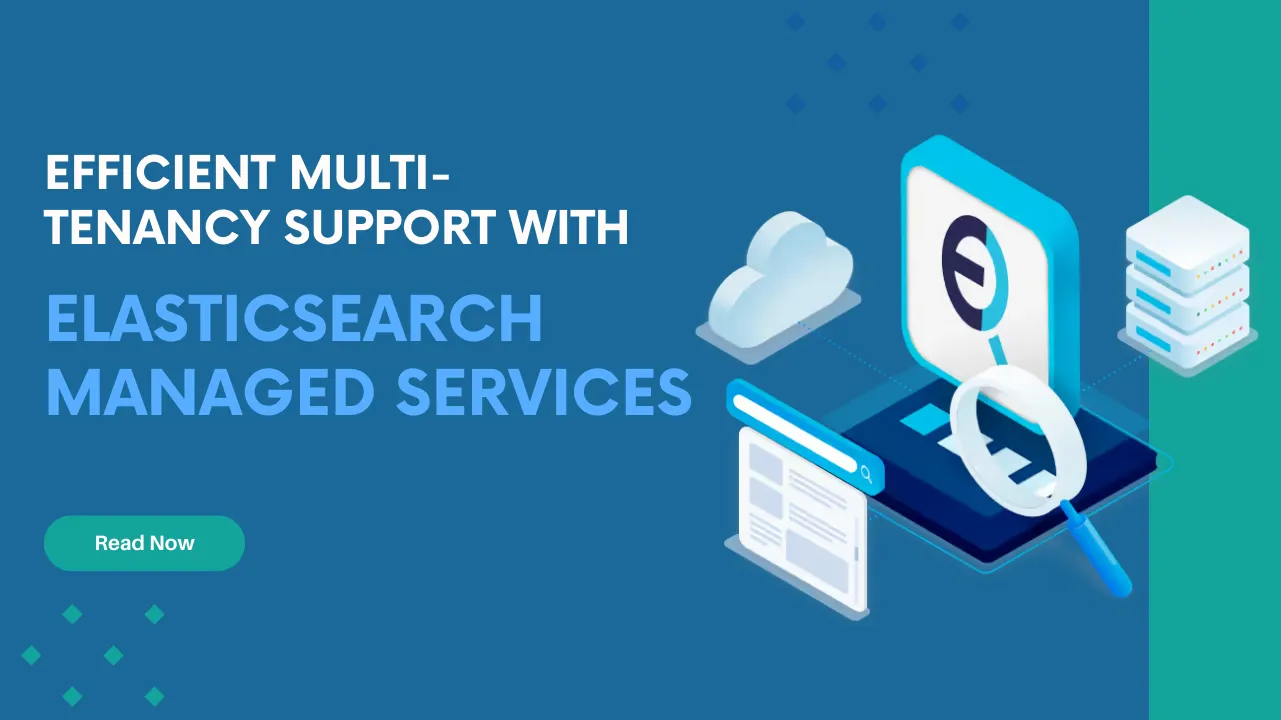In today’s digital landscape, businesses are increasingly adopting multi-tenant architectures to optimize resource utilization and deliver scalable applications. Multi-tenancy refers to the ability to serve multiple customers, or tenants, on a single infrastructure while maintaining data isolation and security. Leveraging Elasticsearch managed services provides efficient multi-tenancy support, enabling businesses to efficiently manage and scale their applications. In this article, we will explore the benefits, features, and implementation of efficient multi-tenancy support with Elasticsearch managed services.
Understanding the Need for Multi-Tenancy Support
Multi-tenancy support is essential for organizations that serve multiple clients or user groups on a shared infrastructure. It allows businesses to maximize resource utilization, reduce costs, and provide a seamless experience to their customers. In the context of Elasticsearch, multi-tenancy enables organizations to isolate data and access rights for different tenants, ensuring privacy, security, and efficient data management.
Introducing Elasticsearch Managed Services
Elasticsearch managed services, offered by cloud providers or specialized service providers, provide a fully managed and scalable Elasticsearch infrastructure. They handle the complexities of infrastructure setup, maintenance, and performance optimization, allowing businesses to focus on their core applications and services. With the multi-tenancy capabilities of Elasticsearch managed services, organizations can efficiently serve multiple tenants on a shared Elasticsearch cluster.
Benefits of Multi-Tenancy Support with Elasticsearch Managed Services
Efficient multi-tenancy support with Elasticsearch managed services offers several benefits:
Resource Optimization:
Multi-tenancy allows organizations to maximize resource utilization by sharing infrastructure among multiple tenants, reducing costs associated with dedicated resources for each tenant.
Scalability:
Elasticsearch managed services can dynamically scale the infrastructure to accommodate the growing needs of multiple tenants, ensuring optimal performance and responsiveness.
Data Isolation and Security:
Multi-tenancy ensures data isolation between tenants, preventing unauthorized access and providing secure storage and retrieval of tenant-specific data.
Simplified Management:
With Elasticsearch managed services, organizations can delegate the management of infrastructure, including backups, upgrades, and security patches, to the service provider, saving time and effort.
Improved Performance:
Efficient multi-tenancy support optimizes resource allocation and query routing, ensuring that each tenant’s applications perform optimally without impacting others.

Key Features for Efficient Multi-Tenancy Support
Efficient multi-tenancy support with Elasticsearch managed services relies on key features:
Index and Document Level Isolation:
Elasticsearch allows data isolation at the index and document levels, ensuring that each tenant’s data is securely separated from others.
Role-Based Access Control (RBAC):
RBAC enables organizations to define fine-grained access control policies, restricting access to specific indices, documents, or features based on user roles and permissions.
Resource Allocation and Quotas:
Elasticsearch provides resource allocation and quota mechanisms to prevent resource abuse and ensure fair resource distribution among tenants.
Customized Dashboards and Visualizations:
Elasticsearch’s visualization capabilities, coupled with Kibana, allow organizations to create customized dashboards and visualizations for each tenant, providing a tailored experience.
Tenant-Specific Index Patterns:
Elasticsearch managed services enable organizations to define tenant-specific index patterns, ensuring efficient data routing and optimized search performance.
Use Cases for Multi-Tenancy with Elasticsearch
Multi-tenancy with Elasticsearch managed services finds applications across various domains:
Software-as-a-Service (SaaS) Platforms:
SaaS providers leverage multi-tenancy to serve multiple customers on a shared infrastructure, isolating their data and providing a secure and efficient user experience.
eCommerce Platforms:
eCommerce platforms utilize multi-tenancy to host multiple merchants, ensuring secure data isolation, personalized experiences, and optimized search capabilities.
Data Analytics Platforms:
Data analytics providers employ multi-tenancy to offer analytics services to multiple clients, enabling them to securely analyze their data and derive actionable insights.
Collaboration Tools:
Collaboration tools and project management platforms use multi-tenancy to enable teams and organizations to collaborate within a shared environment while maintaining data segregation and privacy.
Implementing Multi-Tenancy with Elasticsearch Managed Services
To implement multi-tenancy with Elasticsearch managed services, follow these steps:
Evaluate Elasticsearch Managed Service Providers:
Research and select a reliable Elasticsearch managed service provider that offers robust multi-tenancy support and meets your business requirements.
Tenant Isolation:
Design a multi-tenancy strategy that includes logical and physical isolation of tenant data, user authentication, and access controls.
Index and Document Level Separation:
Define index and document structures that ensure isolation between tenants, allowing secure storage and retrieval of tenant-specific data.
Role-Based Access Control:
Implement RBAC mechanisms to define granular access control policies, ensuring that each user or role has appropriate permissions and restrictions.
Resource Allocation and Monitoring:
Configure resource allocation and monitoring mechanisms to prevent resource abuse, track resource usage, and optimize performance for each tenant.
Best Practices for Successful Multi-Tenancy Implementation
Consider the following best practices for successful multi-tenancy implementation with Elasticsearch managed services:
Thoroughly Plan Data Segregation:
Carefully design data segregation strategies, including index and document structures, to ensure efficient data isolation and query performance.
Fine-Grained Access Control:
Define well-defined access control policies to enforce tenant-specific permissions and restrict access to sensitive data and features.
Regular Monitoring and Resource Optimization:
Continuously monitor resource usage, query performance, and system health to identify bottlenecks, optimize resource allocation, and ensure fair resource distribution among tenants.
Scalability Planning:
Consider the scalability requirements of each tenant and plan infrastructure scaling accordingly to accommodate future growth and ensure consistent performance.
Regular Security Audits:
Conduct regular security audits and vulnerability assessments to identify potential risks and ensure the integrity and confidentiality of tenant data.
Need help on maintaining Azure Security Center Secure Score of Clients?
Our experts can help you on all kinds of works on Azure Security Center.
Conclusion
Efficient multi-tenancy support with Elasticsearch managed services empowers organizations to optimize resource utilization, ensure data isolation, and deliver a secure and scalable experience to their tenants.
By leveraging key features such as index and document level isolation, RBAC, and resource allocation mechanisms, businesses can efficiently serve multiple tenants on a shared Elasticsearch infrastructure. With proper planning, implementation, and best practices, Elasticsearch managed services provide a robust foundation for multi-tenant architectures.








